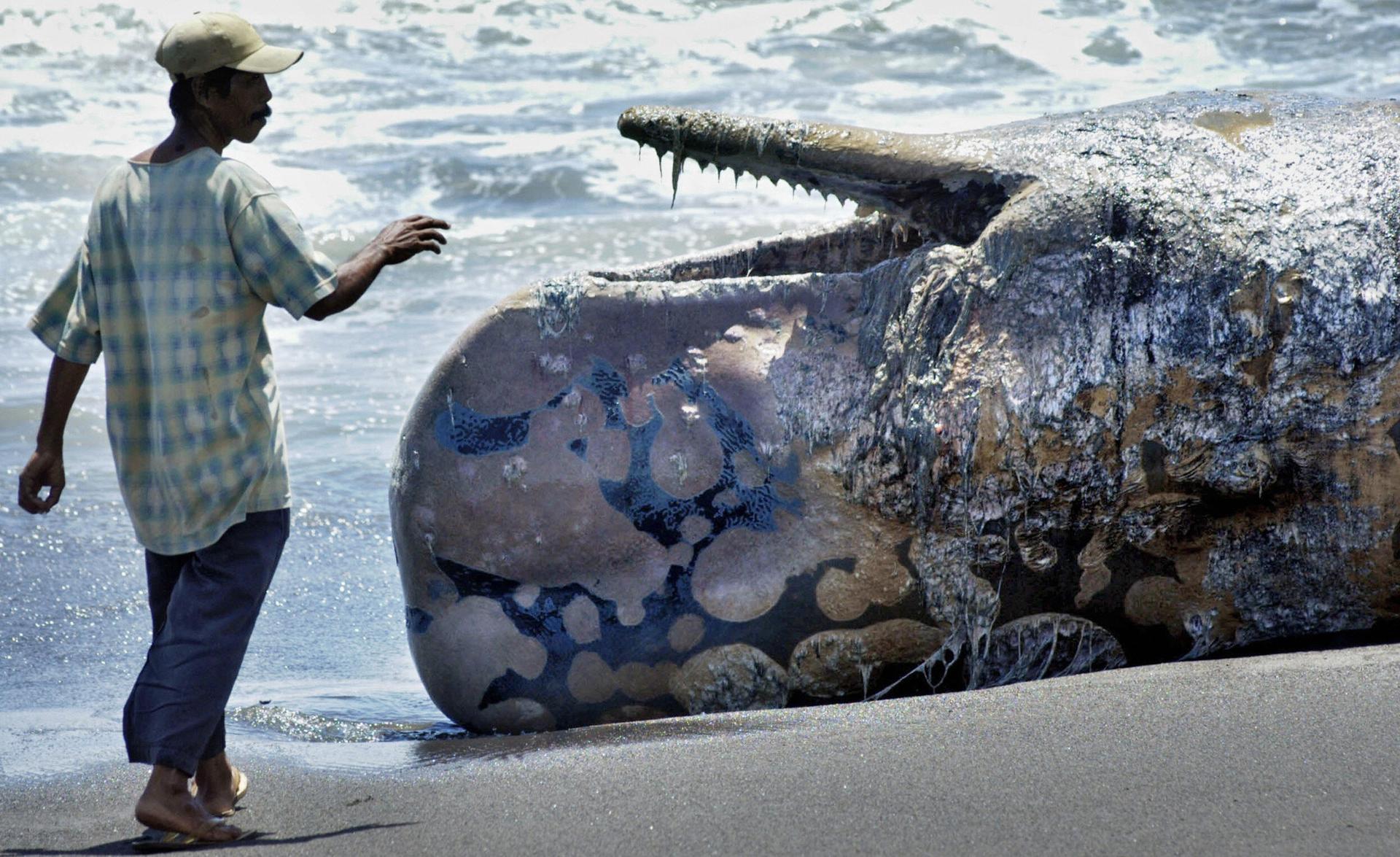Photos show dead sperm whale in Gulf of Mexico
A man looks at a dead stranded sperm whale in Yogyakarta, Indonesia in 2007.
Greenpeace released a series of photos this week of a dead and decaying sperm whale in the Gulf of Mexico that is suspected to have died as a result of the 2010 BP oil spill.
Greenpeace also released emails detailing the US Department of Commerce's National Oceanic and Atmospheric Administration's response to evidence of adverse effects of the spill. The documents were obtained through a freedom of information request, the Guardian reported.
The whale was initially found dead by a research crew on June 15, 2010. Another research crew spotted five more oil-covered whales later that day.
Although the whale's discovery was reported by the NOAA at the time, the Guardian said the press release was cut down from the original. Emails in the release reveal that those on the research boat, the Pisces, were told not to release photos or video of the dead whale, with the NOAA's Paul Felts writing, "The ship's captain has asked all personnel who took pictures not to transmit them in any form until further notice."
However, at least one observer, NOAA Teacher at Sea Nicolle von der Heyde, posted photos at the time.
Ben Sherman, an NOAA spokesman, told Mother Jones that the moratorium on images being released was based on official protocol "so that the information could be cataloged and verified as part of the the investigation against BP."
Sherman also said the sperm whale's body was too decayed for the cause of death to be determined, although it was included on a count of animal victims of the Gulf oil spill.
This was the first confirmed sighting of a dead whale in the Gulf since the Deepwater Horizon explosion. But a 2010 report consolidated by the US government's Restore the Gulf site put the tally of dead mammals at 100 — far eclipsed by birds at 6,104 and sea turtles at 609, but expected to have risen in the past two years. Greenpeace's main contention with the government's handling of the spill at this point is a lack of transparency, they explained in a media release Wednesday.
"The problem remains that we don’t know exactly what BP and the government scientists saw, what they documented, and how they kept their records," Greenpeace Research Director Kert Davies said in the release. "The systemic clamp down on information and consistent lack of transparency and images such as these continue to remind us to demand full accountability from the oil companies and the government, especially with the looming legal settlement between the company and the government."
The story you just read is accessible and free to all because thousands of listeners and readers contribute to our nonprofit newsroom. We go deep to bring you the human-centered international reporting that you know you can trust. To do this work and to do it well, we rely on the support of our listeners. If you appreciated our coverage this year, if there was a story that made you pause or a song that moved you, would you consider making a gift to sustain our work through 2024 and beyond?
